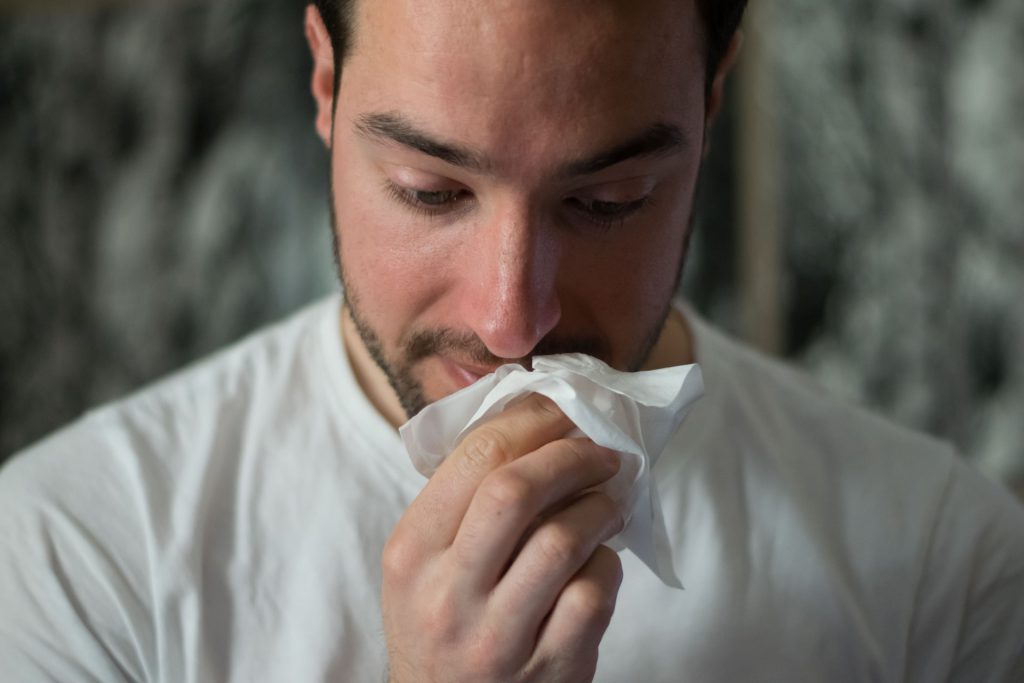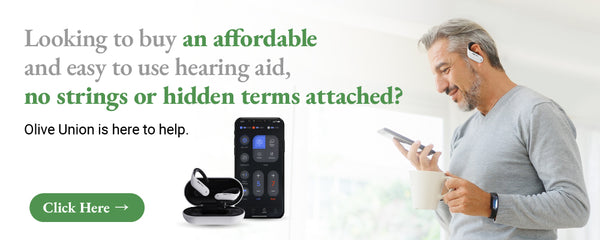The Best Medicine for Clogged Ears : Antihistamine, Decongestant, and 3 Simple Home Remedies

Are you looking for medicine for a clogged ear? Are you searching for the best antihistamine for clogged ears? Are you looking for the best over-the-counter decongestant for clogged ears? If so, you need to read this article.
This article comprehensively covers home remedies and various medications that can help unclog blocked ears easily.
Clogged ears can be frustrating and depending on the cause of your symptoms, home remedies don’t always work. This article will explore some of the best clogged ears medicine and medications and also provide an answer to the question 'how to open clogged ears at home'.
However, this method is effective for those experiencing temporary ear blockage. If clogged ears occur 2-3 times a week or more, causing disruptions in daily life, it's advisable to visit the nearest ENT clinic for a hearing test.
Moreover, if conversations become challenging due to muffled hearing, there's a high likelihood that you need to use hearing aids. If you lack time or financial resources for a hearing test at the ENT clinic, consider trying Olive Max.
It's an FDA-regulated OTC hearing aid that you can order with just one click right now. Click the banner below to GRAB the current discount on Olive Max. Say goodbye to clogged ear problems and embrace a more vibrant life awaiting you
Why Are My Ears Clogged?
To start the most effective course of treatment, you’ll want to work out the cause of your clogged ears. We’ve covered many of the causes in our Why Does My Ear Feel Clogged? Causes and Treatment article, but to summarize here are some possible reasons:
- Fluid in the Ear
- Sinus Pressure
- Changes in Atmospheric Pressure
- Ear Wax Build-up
- Objects Obstructing Your Eardrum
Keep track of your experience and make a note of your symptoms. Not only will this help you to identify the cause, but this will also be useful information if you need to visit your doctor due to worsening or persistent symptoms.
Many people often ask, 'Why does my one ear feel blocked?'
The causes, such as fluid in the ear, earwax build-up, or objects obstructing the eardrum, tend to occur less frequently in both ears simultaneously.
However, symptoms of a blocked or muffled ear due to factors like sinus pressure or changes in atmospheric pressure commonly affect both ears. If you experience clogged ear symptoms in both ears at the same time, suspecting sinus pressure or changes in atmospheric pressure would be reasonable. If the symptoms are asymmetrical, occurring in only one ear, then considering causes like fluid in the ear, earwax build-up, or objects obstructing the eardrum becomes a primary consideration.
Now, a frequently asked question is, 'Will a clogged ear go away by itself?' In mild cases, a clogged ear may resolve on its own.
However, for those of you searching for solutions through online queries, you may likely need some specific medications and home remedies to unclog your ear, especially if the condition persists.
Medicine For Congestion (Fluid in the Ear/Blocked Eustachian Tubes)

Blocked Eustachian tubes will often get better on their own or after trying to yawn or ‘popping your ears,’ as the tubes open briefly to let air in to make the pressure in the middle ears equal to the pressure outside of the ears.
If this doesn’t solve your problems, however, you should make an appointment with your doctor. They’ll be able to recommend an OTC pain medication to relieve your symptoms, but sometimes you might just have to wait for the ears to pop on their own.
If your congestion is caused by allergies, a steroid medicine that you can spray into your nose might help, or alternatively, decongestants that you take by mouth or spray into your nose will help ease congestion and unclog your ears.
Medicine for Clogged Ears Caused by an Infection
If your clogged ears are caused by an outer ear infection your doctor might recommend acidic ear drops to prevent bacteria or fungus from spreading. They might also suggest antibiotic ear drops for bacterial infections, steroid ear drops to reduce swelling, antifungal ear drops for fungal infection, and antibiotic tablets if the bacterial infection is severe or ongoing.
For infections inside the ear, antibiotics are not generally offered, as these infections usually go on their own (as stated by The Centers for Disease Control and Prevention). A painkiller such as paracetamol might be recommended for the pain (which antibiotics can’t treat).
This being said, you might be prescribed antibiotics in some instances, such as if your infection does not start to get better after three days, you have any fluid coming out of your ear, or you have an illness that means there’s a risk of complications (such as cystic fibrosis).
OTC Medicine for Clogged Ears

If you’re experiencing general stuffiness, ear discomfort, and sinus pain, an OTC pain reliever, such as painkillers such as ibuprofen (Motrin), paracetamol, or naproxen sodium (Aleve) are good short-term relief until you see a doctor.
OTC decongestant tablets or nasal sprays can ease sinus blockage and clogged ears, just be sure you don’t use them for more than three days as your body can get overly habituated to them.
Also be sure to avoid extreme temperatures, keep your head up, blow your nose gently (blocking one nostril), and drink plenty of fluids to help nasal mucus thin.
How to unclog the clogged ear at home? : 3 effective Home remedies for Clogged ear
Additionally, There are Home remedies for a clogged ear. You can try it before taking specific medicine.
-
Try inhaling steam.
Fill a wide bowl with hot water, lean your head over it, and inhale the steam through your nose and mouth from about 50cm away. Since our ears are connected to the nose and mouth, changes in the humidity of the nose and mouth can affect the situation and potentially unclog the ear. You can also cover your head with a towel to direct the steam more effectively, but be cautious not to get too close to the hot water, as even without direct contact, hot steam can pose a threat to our sensitive eyes.
-
Hold your nose closed and exhale through your nose.
This method, similar to using a snorkel, involves forcibly closing your nose and generating strong pressure to impact the ear connected to the nose. When the clogged ear unclogs, you may hear a sound, indicating the resolution of the blocked symptoms due to pressure changes.
-
Rotate your head in various directions and try different positions while lying down.
If your ear is clogged due to fluid, efforts to disperse the blocking liquid may be necessary. The specific position that can resolve your clogged ear is not fixed, but in many cases, lying on your side, slightly elevating your head, and looking at your heels for about 30 seconds has been effective.
If you combine these remedies with the mentioned medication, your ear is likely to unclog faster.
What Medicine to Avoid When You Have Clogged Ears
If you have an ear infection it is not recommended that you try either decongestants or antihistamines as they will not make a difference to your symptoms.
Of course, if this is not the cause of your problems they may help. It’s useful to keep track of your symptoms to try to work out what’s going on or visit a doctor for a diagnosis.
When to See a Doctor
If your symptoms are getting worse, aren’t going away at home, or you are also experiencing severe pain, a fever, dizziness, fluid drainage, bleeding from your ear, hearing loss, or balance problems you should make an appointment with your doctor.
They will have the right tools to safely remove wax if this is the issue, or can prescribe you medications.
Never attempt to remove ear wax on your own, as you could damage your ear. Your doctor will be able to advise you on whether the buildup needs removal and remove the earwax with proper cleaning techniques.
It is worth keeping in mind that chronic inflammation and tumors can cause symptoms of clogged ears, but can also cause permanent hearing problems. It is always worth visiting a doctor to rule out dangerous underlying conditions.
Your doctor might need to look in your nose (as it is connected to the ear) and some people may require medical imaging (if you have suspected acoustic neuroma).
The information in this guide has been written using the following reliable sources:
https://www.webmd.com, https://www.uofmhealth.org, https://www.healthline.com, https://www.medicalnewstoday.com, https://www.healthline.com
The post The Best Medicine for Clogged Ears appeared first on Olive Union.







 Everyone has had or dealt with dry skin at some point in their lives. It can be caused by the environment, allergens, lifestyle decisions, and many other varying factors and can be quite a nuisance to deal with, even painful. Similarly, the same can be said for dry ears. Similar to how skin produces oil […]
Everyone has had or dealt with dry skin at some point in their lives. It can be caused by the environment, allergens, lifestyle decisions, and many other varying factors and can be quite a nuisance to deal with, even painful. Similarly, the same can be said for dry ears. Similar to how skin produces oil […] Web designer is a particularly accessible job for the hearing impaired as well, because most of the communication involved tends to be digital. Salary...
Web designer is a particularly accessible job for the hearing impaired as well, because most of the communication involved tends to be digital. Salary...
